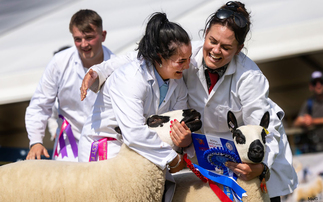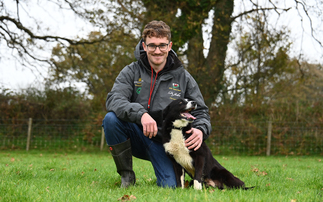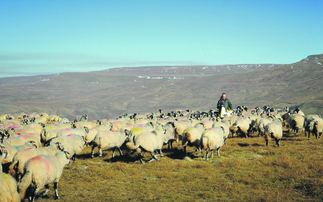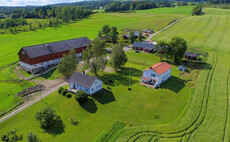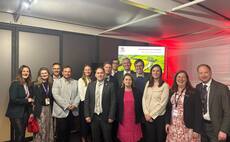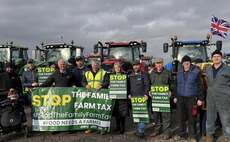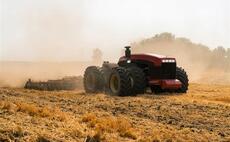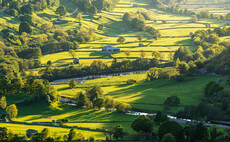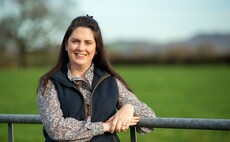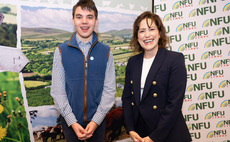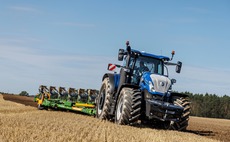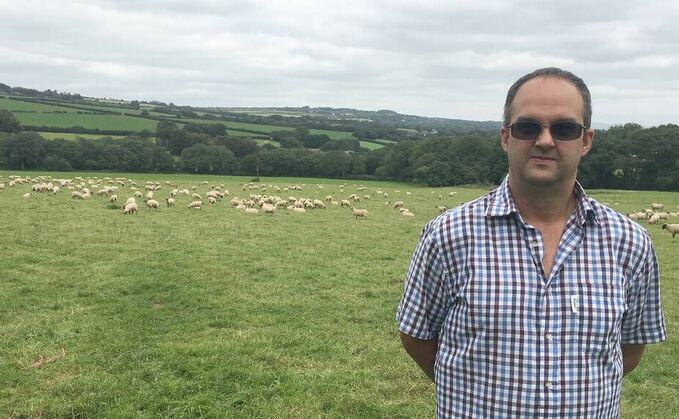
With changes to support structures throwing up a host of questions at the farmgate, AHDB's new Farm Business Review is helping one mixed farmer future-proof his business and prepare for the loss of Basic Payments. Mollie Leach reports.
Reductions in Basic Payments beginning earlier this year mean taking a waitand-see approach to subsidy support is no longer a viable option for farmers and growers.
That was the attitude of beef and sheep farmer Adrian Coombe, of Dupath Farm, Callington, Cornwall, when he signed up for AHDB's free Farm Business Review.
Funded by the Defra Future Farming Resilience Fund and specially designed to help those most affected by the move away from direct payments in England, the service provides expert advice via a network of approved consultants, and a series of online tools to evaluate the impact of subsidy cuts.
Mr Coombe said: "As part of this process, the online Basic Payment Scheme [BPS] Impact Calculator has been an important tool in assessing the real impact the reduction in direct payments will have on our farm business, particularly over the next four-year period." In a bid to kick-start future planning and help farmers explore the new agri-environment options available, the calculator requires users to enter data relating to the BPS payments they received in 2020.
Pointing to the ‘accessibility' of the tool, Mr Coombe encouraged other farmers across the industry to make use of the calculator if they wanted to stay ahead of the game.
He said: "It is a user-friendly tool which required minimum effort, but the return from which could be incredibly beneficial as we look at our options and plan over the coming years.
I was instantly able to see what the financial impact of direct payment cuts would have on our farm business." As a mixed farmer, with 500 breeding ewes, 200 Angus and Blue dairybred beef cattle and 30.3 hectares (75 acres) of combinable crops, Mr Coombe has a wealth of knowledge about the industry, but like many, remaining profitable in a post-BPS era has proved a grey area.
Mixed enterprise
He said: "As a mixed enterprise and with fluctuations in commodity prices, the revenue from one enterprise often enabled us to recoup some of the losses from another part of the business, allowing us to break even.
BPS had previously meant we were therefore able to continue to reinvest in the business." To help Mr Coombe assess his options in greater detail, AHDB knowledge exchange manager Sarah Hurford was on-hand to offer tailored advice.
Mr Coombe said: "By consulting with Sarah, which followed a farm walk and in-depth discussion of our farming operation, we quickly pinpointed two aspects of the future Sustainable Farming Incentive [SFI], which would be applicable on-farm, with most of the requirements for the grassland and the arable soils standards already being carried out.
"Therefore, with minimal change to the business, we realised we could bring in an additional income of £8,500 for the grassland standard and £1,800 for arable, totalling £10,300." While the SFI is not open until 2024, a scaled back version of the scheme will be open to all BPS claimants, including those who are already in Countryside Stewardship schemes.
He said: "It does not replace the £30,000 of BPS payments we had previously been receiving, but it will go some way towards offsetting some of these losses and push the business forward without having to drastically alter our systems approach." Mr Coombe then focused his attention on the service's Business Resilience Assessment.
Based on the traits of top performing farms, the online tool is designed to help farmers take a step back to identify their business' individual strengths and areas for development, through a series of self-assessment questions.
"We realised we could bring in an additional income of £8,500 for the grassland standard and £1,800 for arable, totalling £10,300"
Adrian Coombe
Following the assessment and after gaining advice from AHDB's knowledge exchange manager, Mr Coombe identified the need to set goals and budgets would be a priority going forward.
He said: "My wife Lyn and I mentioned we hoped the business would be big enough for both of our children.
"Although plans for succession are at least 10 years away, being aware of this goal now means we can start to plan accordingly.
"Sarah suggested we build a property on the TB unit, as not only would this add significant asset value, but potentially offer a secondary homestead if we needed to divide any of the farmed area." The need to shave overhead costs by improving farm efficiencies was also identified as an area for development, with the service encouraging Mr Coombe to relook at his farmbench data, with AHDB's full-farm benchmarking tool.
Through more efficient machinery spend, Mr Coombe said: "Our policy is to change the main tractor every 10 years.
However, we now invest in second-hand machinery, which saw us save £45,000.
"While accounting for some repair costs, this significantly reduced the depreciation costs and will have a real impact overall on our overheads." Mr Coombe added this simple one to five scale, used to rate each area within the self-assessment, had allowed him to re-evaluate his performance data for benchmarking.
He said: "Any tool which makes you assess the farm's performance with itself, as well as with farms across the country, is key." And the continued importance of benchmarking revealed itself as a priority when using AHDB's KPI Express Calculator, which was used to review the farm's net profit KPI.
This allows Mr Coombe to compare his business' performance against the top 5-25 per cent of farms.

Farm business key facts: Dupath Farm, Callington, Cornwall
- Adrian and Lyn Coombe are business partners responsible for the day-to-day running; Adrian's father Peter is still involved as a sounding board and works three days a week on-farm
- 142 hectares (350 acres) majority owned, 28ha (70 acres) rented
- Grows winter barley, winter oats, spring barley and stubble turnips used as a cover crop on spring cereals
- 500 breeding ewes and 120 ewe lambs, all sold to Dunbia in Wales through the RamCompare project
- 160-200 dairy-bred beef cattle (Angus and Blue) some on a TB-approved grazing and finishing unit
Performance
Performance
He said: "We identified that the farm had performed well, with 16 per cent retained profit, but the proportion of total income spent on variable costs was very high, at about 47 per cent, exceeding our target of 35 per cent.
"This may have been due to reduced total sales in that year, but also could have been due to the stock, feed and fertiliser we purchased, alongside vet bills."
Easy wins
In collaboration with Ms Hurford, the business identified some easy wins, with small changes, such as rotational grazing to promote higher silage from clovers and a move to multi-cut systems to reduce the requirement for purchased proteins, key to minimising variable costs on-farm.
With BPS payments on average accounting for about 60 per cent of UK farm net income, Mr Coombe reinforced making use of this free business support service would be paramount, as farmers navigate the biggest agricultural transition since the post-war era.
He said: "AHDB, in collaboration with Defra, has put this funding in place to help us gear up for the transition to environmental payments, giving us an idea of where improvements need to be made and what we need to address in the short-term, while also planning for the future.
"The online tools are accessible, easy to use and have provided us with a firm starting point going forward as we now look to work on areas of development within the business.
"I would urge farmers across all sectors to take this opportunity with both hands."
How to get involved: sign up to the Farm Business review
The service is open to English farmers across the beef, sheep, dairy and arable sectors.
More information
To find out more, visit www.ahdb.org.uk/farm-business-review.com
AHDB Hub

For more projects from AHDB, visit the homepage.








